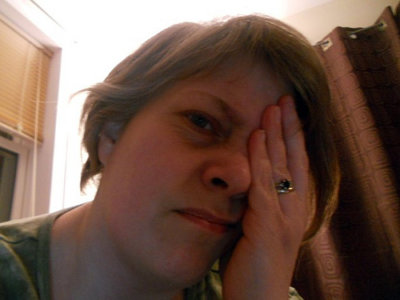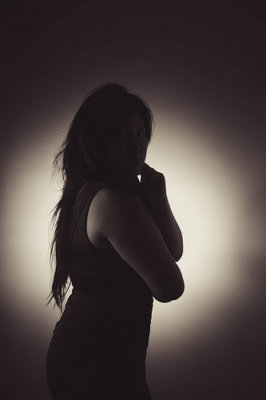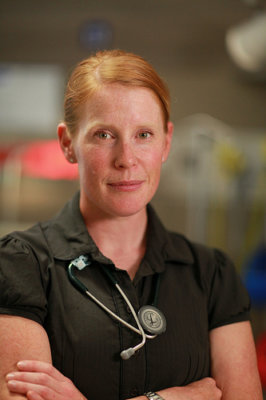Female, Over 30, and Anxious? It Could Be “Menopause Anxiety”

By: rochelle hartmanIt’s Not All in Your Head
For decades, anxiety in middle-aged women was dismissed as female temperament, or despair over loss of youth. It was finally conceded that women, too, could have a midlife crisis.
Yet modern studies show that women become happier as they age, while men do don’t. So then why the discrepancy?
It turns out the cause is often the hormone shifts preceding menopause – and it can start earlier than you think.
Symptoms of Menopause Anxiety
Many general practitioners – and even gynaecologists – miss the signs of menopause-related anxiety. They might instead refer you for anti-anxiety medication, because the symptoms are almost the same as psychologically-caused anxiety.
The symptoms of menopause anxiety include:
- Fearfulness or feelings of vulnerability
- Free-floating anxiety
- Excessive worry
- Impatience or short-temperedness
- Feeling physically tense and jittery
- Mood swings
- Mild depression
- Panic attacks
- Feeling overwhelmed
- Fatigue
- Exacerbation of previous mental issues, including schizophrenia, depression, panic
- disorder, OCD, and bipolar disorder
- Sleep difficulties, including insomnia, nightmares or night sweats
- Racing pulse, heart palpitations
- Headaches
- Stomach upsets
Who Gets Menopause Anxiety?

By: Sodanie Chea
Symptoms can begin when you are 30 or even younger. Periods and ovulation are still regular, and actual menopause is far in the future, but the subtle shift in hormones has begun.
In fact, according to experts, it’s during the years leading up to menopause when hormones are in constant flux, known as perimenopause, that anxiety is most likely to surface. Once menopause occurs, hormones stabilise and bouts of anxiety cease to be a problem.
Since the years between ages 30 and 50 are busy years for most women and the decades when responsibilities are at their peak, many women erroneously attribute their symptoms to other, exterior things. This might be overwork, the cares of child-rearing, working outside the home, and other stressors.
Certainly, these factors can contribute, but if you find yourself feeling stressed and overwhelmed by the same routine you previously handled with ease, hormones may be the culprit.
Finally, some hormone-related symptoms, especially disturbed sleep patterns, may do as much to trigger anxiety as the hormones themselves. Forty to 50% of women suffer from insomnia during menopause, and women who experience insomnia are more likely to report suffering from stress, anxiety, and depression.
Understanding the Hormone Hurricane

By: Amanda Hatfield
Dr. Jennifer Landa, Chief Medical Officer of BodyLogicMD, a nationwide chain of U.S. clinics specialising in correcting hormone imbalances in men and women, feels that too many women with menopause anxiety are wrongly diagnosed and given prescriptions for mood elevators like Prozac and Zoloft. “These women,” she says, “do not have a Zoloft deficiency. It is more likely that they have a progesterone deficiency.”
Until a woman is around 30, estrogen and progesterone rise and fall throughout the month in rhythmic balance. Around age 30, progesterone levels begin to gradually decline. How can this imperceptible decrease cause such havoc?
In women, the hormone progesterone has a calming effect. Too much estrogen in proportion to progesterone can create feelings of tension and stress. and all the symptoms of anxiety. In response, the body produces an anti-stress hormone called cortisol. Because the body’s has now prioritised cortisol production, less progesterone than usual is made, throwing the normal balance even further out of whack.
As you can see, the process can become a torturous spiral. Relief usually comes with menopause, when estrogen levels drop and a new balance is established.
What You Can Do if You Suspect You Have Menopause Anxiety
Not all women are troubled by these hormone fluctuations, but if you are, there are several things you can do, including:
1. Talk to your doctor and get your hormones checked. Don’t be shy about telling your doctor what’s going on. A test to check hormone levels is simple, done either through a blood or saliva sample. Your doctor may prescribe a course of hormone therapy, which can be extremely helpful during these transition years.
2. Re-evaluate your schedule. If the busy schedule you customarily handle with easy begins to seem overwhelming and leaves you exhausted, look for ways to cut back. The good news is, the fatigue isn’t permanent, and more women feel a resurgence of energy after menopause. Until then, look for ways to lighten your load, such asking your kids to do more chores around the house.
3. Make time to relax. Whether your idea of relaxation is yoga, floating around a pool, or crafting, free up some time for it. Participating in an activity you enjoy, one that’s not associated with work or responsibility to others, is a great way to set anxiety aside and get into the present moment.
4. Exercise. Aside from jazzing up your metabolism, exercise in and of itself decreases stress, re-energises you, and may help with sleep disturbances. It also boosts your confidence and self-esteem, and helps you see your body as a friend rather than a foe. (Read our article on Overcoming Exercise Excuses if you find yourself struggling with this one).
5. Get enough rest. This may be a time when you need more sleep than usual, and should try to accommodate your body’s needs.
6. Pay attention to diet. Cut back on junk foods that provide little in the way of energy and nutrition. Dr. Landa also points out that hormones given to animals make their way into the food supply and can exacerbate hormone problems. Also, consider limiting contact with xenoestrogens, a class of estrogen-mimicking that includes methyl, ethyl, and propylparaben, which are often found in grooming products like shampoo and body lotion.
Counselling Can Help
Though menopausal anxiety is rooted in hormonal changes, there are psychological overtones, as there are with most major life transitions. The same body that served you so well may seem suddenly unreliable.
Some women develop a negative body image during this times, or become fixated on the idea that what they’re experiencing is just the beginning of a permanent downward spiral.
Psychological counselling has been proven beneficial for such issues, and can help manage symptoms like stress, loss of confidence, and depression. For example, CBT (cognitive behavioural therapy) is an evidence-based form of therapy proven to help you reframe negative and distorted thoughts, as well as deal with other life issues that often surface at this time. And when menopause does happen, CBT has even been proven in randomised trials to help with physical symptoms like night sweats and hot flashes.
Menopause anxiety can be something women don’t want to think about, especially if you are in your thirties. But it’s important to be proactive and get help. It means the rest of your life can run smoothly even if your hormones are not quite.
Have you experienced menopause anxiety? Have a tip for readers? Share below.





